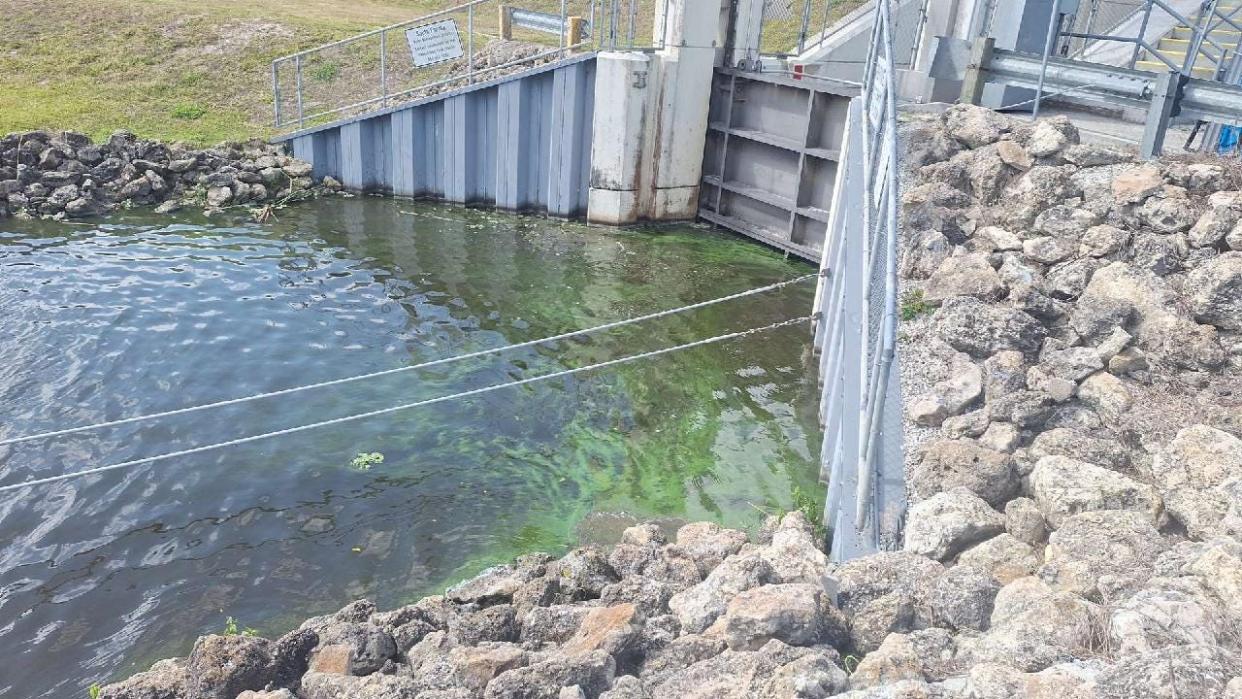Toxic algae alert issued for Lake Okeechobee, according to Martin County Dept. of Health
The Florida Department of Health in Martin County is cautioning the public of the presence of blue-green algae in areas of Lake Okeechobee on May 7. Water sample testing is underway. Results from the Department of Environmental Protection will be available later this week.
Blue-green algae have the potential to produce toxins which can be harmful to humans and pets. Since environmental conditions can change at any time, it is important to exercise caution, even if presence of toxins has not yet been confirmed.
The toxin microcystin, when found in concentrations of more than 8 parts per billion, can be harmful, according to the Environmental Protection Agency. Samples were collected May 7 at:
Lake Okeechobee side of the S-308 (Port Mayaca) flood gates
Lake Okeechobee near the Pahokee Marina
Lake Okeechobee near the center of the lake
DEP will report the results of its sampling on its Blue-green Algal Bloom Dashboard.

At the present time, there are no Lake Okeechobee discharges flowing downstream from the lake through the C-44 Canal to St. Lucie River. When there are discharges, the health department advises people to take these precautions:
Do not drink, swim, wade, use personal watercraft, water ski or boat in waters where there is a visible blue-green algae bloom.
Wash your skin and clothing with soap and water if you have contact with algae or water that's discolored or smelly.
Keep pets away from the area. Water containing algae blooms are not safe for animals. Pets and livestock should have a different source of water when algae blooms are present.
Do not cook or clean dishes with water contaminated by algae blooms. Boiling the water will not eliminate the toxins.
Eating fillets from healthy fish caught in freshwater lakes experiencing blooms is safe. Rinse fish fillets with tap or bottled water, throw out the guts and cook fish well.
Do not eat shellfish in waters with algae blooms.
How to report algae blooms
DEP collects and analyzes algal bloom samples. Report algae sightings to DEP online or via its toll-free hotline at 855-305-3903.
Report fish kills to the Florida Fish and Wildlife Research Institute at 800-636-0511.
Report symptoms from exposure to an algal bloom or any aquatic toxin to the Florida Poison Information Center at 800-222-1222.
Contact your veterinarian if you believe your pet has become ill after consuming or having contact with water containing cyanobacteria (blue-green algae). If you have other health questions or concerns, call DOH-Martin at 772-221-4000.
This article originally appeared on Treasure Coast Newspapers: Toxic algae alert for Lake Okeechobee by Martin Dept. of Health
